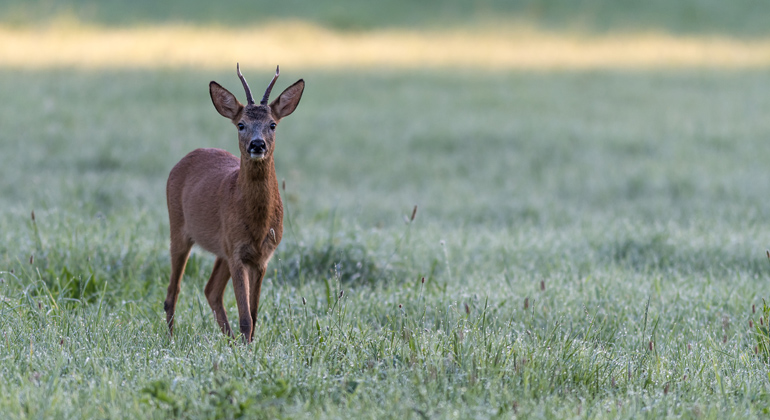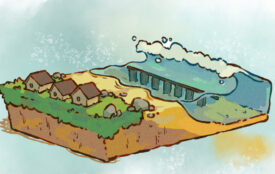The impact of supplemental winter feeding on the rumen microbiota of roe deer
Significant differences in the ruminal microbiota.
A study conducted by the Vetmeduni Vienna shows that supplemental winter feeding of roe deer causes significant changes in the ruminal microbiota composition of the wild ruminants, with potentially negative effects on their health.
Roe deer (Capreolus capreolus) populate wide areas of Europe and face seasonal variations in food availability. In some European countries, including Austria, it is therefore common practice to provide game animals with supplemental feed in winter.
How the availability of easily digestible, high-energy feed in winter affects the digestive system of wild ruminants is not yet sufficiently understood. This is particularly relevant in wild ruminants as they exhibit pronounced seasonal variation in their physiological processes, including in the digestive system during the cold season.
In a joint research project, the Research Institute of Wildlife Ecology and the Institute of Food Safety, Food Technology and Veterinary Public Health at Vetmeduni Vienna, together with the Institute of Wildlife Biology and Game Management at the University of Natural Resources and Life Sciences (BOKU), investigated to which extent supplementary winter feeding affects the bacterial composition in the rumen. The researchers analysed the rumen bacterial composition of free-ranging female roe deer, comparing animals from a study area with supplemental feeding sites to individuals relying on natural feed.
Significant differences in the ruminal microbiota
The analysis of the data showed clear differences, as Stefanie Wetzels und Gabrielle Stalder, the study’s senior authors, explain: “The results of our study suggest that easily fermentable supplemental feed in the winter significantly affects the bacterial population in the rumen of roe deer.”
The study, which was recently published in the renowned journal Wildlife Biology, provides fundamental baseline data on the diversity and composition of ruminal microbiota in European roe deer and create a starting point to better understand the causes behind changes to the ruminal microbiota.
Possible negative health impact from supplemental winter feeding
The results revealed a significant qualitative difference between the microbiota composition of the two populations studied. Easily fermentable supplementary feed promotes the proliferation of the sort of bacterial strains that also lead to acidosis in domestic ruminants – a disorder of the natural acid-base balance. “The change in the ruminal microbiota caused by supplemental winter feeding suggests a negative effect on the health status of roe deer,” Wetzels and Stalder add.
According to the researchers, future studies would be desirable to learn more about the negative effects on the health status of the animals. The high abundance of unclassified bacterial strains found in this study show that more knowledge is needed about the ruminal microbiota in wild ruminants.








